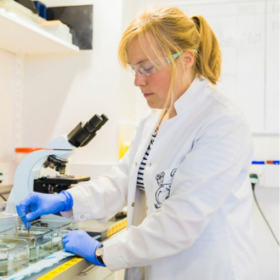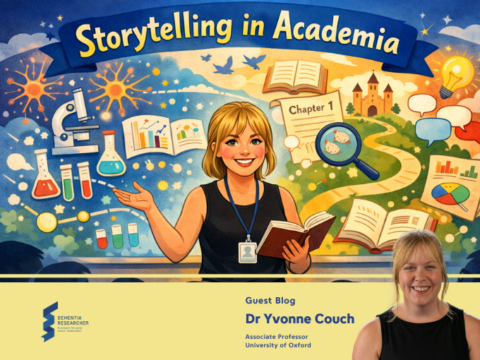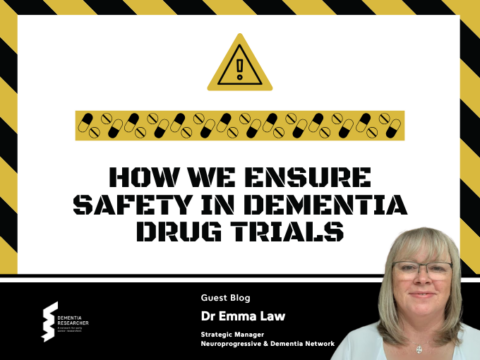Today’s piece of academia-adjacent waffle comes to you care of my obsession with podcasts and the letter Q. No reason for that last bit beyond me enjoying Sesame Street. We’re going to jump straight into it and talk about burnout in academia, largely because I didn’t know very much about it and, according to a whole bunch of random self-tests I took this morning, I am at ‘high risk’ for burnout. The pre-warning for this one is just me saying I’m basically reading you someone else’s podcast and adding in my own opinions as we go. This is exceedingly lazy but it’s an important topic so I figured you needed to hear about it.
I’ll start with some misconceptions I had and hopefully this will give you some context. My Sunday afternoon hole-digging escapade in the garden was accompanied by No Stupid Questions, an excellent podcast I can highly recommend. This week the title included the word ‘burnout’ and I thought ‘well, if nothing else it will be an interesting listen’. My view of burnout was someone so exhausted they couldn’t even get up. Frenetically and constantly working until they just totally run out of juice and collapse quietly like a flan in a cupboard. I have a friend I constantly worry is at risk of burnout because she often has so many meetings in a day she barely has time to eat or use the bathroom.
Clearly, that was not me. I work, sure. I come in every day and do things. But I also spend way more time than I should writing these articles, and I occasionally knock off early and go to the gym. Or have an excessively long ‘breakfast meeting’ with a friend which we try and make sure is at least 50% science. So no, definitely not burned out this end, right?
Angela and Mike, hosts of NSQ and extremely accomplished people in their own rights, started going through some questions. The majority of them are pulled from something called the Maslach Burnout Inventory, a scale originally developed by Christina Maslach to assess burnout in health professionals. The scale aims to place values on emotional exhaustion, cynicism and professional efficacy. You can see where we’re going now, can’t you?
We started with the standard questions. ‘I feel tired when I have to get up in the morning and face another day on the job’. Yes. Obviously. My alarm goes off at 5.25am, my total commute every day is around two to three hours and involves cycling. Sometimes in the rain. Of course I feel tired in the mornings. And Mike agreed, he often feels tired. Lots of people feel tired.
So slightly emotionally exhausted but it’s likely to just be actual exhaustion, of the kind that lots of people feel all the time. I carried on digging, listening with mild interest until my ears pricked up at the next question.
‘I’ve become less interested in my work since I started this job.’
Mike’s instant answer – no. My instant answer – yes. I used to absolutely love what I did. And to some extent I still do, especially when I chat with enthusiastic students or ex-students. Or collaborators I think are great, or potential collaborators about ideas and projects. I love ideas and processes and figuring things out. But, as I’ve mentioned before too many times, being excited about the riddles of life is not really a job, or at least I can’t find anyone who will pay me to do it. And I see too many people, as my first PhD student beautifully phrased it recently, failing upwards in a spectacular fashion.
I’ve stopped digging temporarily to listen to the follow up question.
‘I doubt the significance of my work.’
Again, a hard no from Mike who does a ton of stuff that loads of people care about. In academia we have to struggle to prove ourselves worthy of publication, worthy of funding because – as someone else told me – it is a privilege to do what we do. What I’ve since come to realise that what this means is that nobody actually needs the majority of scientists. Sure we can keep the guys doing the vaccine research, they’re OK, but beyond that everyone is just paddling around trying to cure cancer pretty ineffectively or trying to figure out what one specific type of cell in the brain does. I mean really, what do we need all these people for?
So of course, I doubt the significance of my work.
Next up were some examples from the self-efficacy end of the scale. At this point I’m very concerned I actually have burnout and was unaware of it. This podcast is becoming like Dr Google when you have a mild rash and convince yourself you’ve got some kind of terrible disease only found in South East Asia. I’ve stopped digging to focus.
‘I feel I’m making an effective contribution to what this organization does.’
By this point Mike’s obvious enjoyment of his job is making me bitter and jealous. No, of course I don’t contribute to what this organization does. Sure, I bring in some money, sure I teach some students but I’ve never had feedback on any of that so really, I’m not sure how effective my contribution is. I could be an appalling tutor and a terrible scientist, nobody has ever told me. I rewatched The Devil Wears Prada the other day (don’t judge) and often feel like the University I work at is a little like Runway. A million girls would kill for this job. And sometimes I even feel appalling for thinking things like that, for thinking poorly of the institution that is providing me with space and tools to do my research. Because, like the main character, whilst a million people would die to work here maybe I’m only deigning to work here and that’s not enough. Maybe I should be putting my all into all my teaching and research with zero feedback and feeling totally fine about that. Hmm. One to ponder on.
But not now, Mike’s on a roll feeling good about his job.
‘I feel exhilarated when I accomplish something at work.’
On this one, we agree. That is a weird way to phrase it and who really feels exhilarated about anything they accomplish at work? My answer? Obviously no. I can’t remember the last time I celebrated a paper, or getting funding, or in fact anything. We’re back on the cynicism train again. A very unappealing trait apparently.
But apparently, cynicism is something that I have in common with other researchers. Using the Maslach inventory on young researchers, Boone and colleagues in their 2022 paper found that this was one of the most prominent profiles. They highlighted a number of things which could potentially be contributing to this, specifically stating that “high scores on work-life interference, publication pressure and job insecurity, and low scores on learning opportunities, meaningfulness and social support from colleagues and supervisor were strong predictors of belonging to the High Burnout Risk profile.”
Tick, tick, tick, tick and tick.
When thinking about burnout we automatically think about mental health. And burnout has been linked to anxiety and depression. But the major difference here is that burnout is caused by organizational deficits, not by personal circumstances. If you’re struggling with work-life balance, but your organization has great child-care facilities in place, then you’re less likely to burnout. If you’re struggling to find meaning in your work, but you have a great supervisor who can sit you down and chat you through it, then you’re less likely to burnout. Many of the websites I flicked through this morning suggest seeking help and indeed Boone and colleagues suggest the implementation of local specialists in burnout specific to the experience of the employees.
But what Mike and Angela highlight is that the majority of burnout is because of institutional deficits. They highlight Maslach’s recent paper on burnout and the institutional attributes which can help prevent it. These include a sustainable workload; choice and control; recognition and reward; a supportive work community; fairness, respect, and social justice; and clear values and meaningful work. I think when we work in an environment where luck, rather than fairness, plays such a large role, and where there are no clear values or social justice, you can see why so many young academics burnout.
Finally, they point out that by raising a hand, by sticking your head up above the parapet and saying ‘hey, this is hard’ not only will you help others realise that it’s hard but also that action provides feedback to the organization. If everyone thinks this is hard then maybe we should do something to make it easier. So if you think it’s hard, if you think you’re becoming cynical and exhausted, or that you work in somewhere with no respect or clear values, or that your work isn’t meaningful, then know that you’re not alone and feel free to raise your hand. Perhaps if there are enough of us someone will listen.

Dr Yvonne Couch
Author
Dr Yvonne Couch is an Alzheimer’s Research UK Fellow at the University of Oxford. Yvonne studies the role of extracellular vesicles and their role in changing the function of the vasculature after stroke, aiming to discover why the prevalence of dementia after stroke is three times higher than the average. It is her passion for problem solving and love of science that drives her, in advancing our knowledge of disease. Yvonne shares her opinions, talks about science and explores different careers topics in her monthly blogs – she does a great job of narrating too.

 Print This Post
Print This Post





